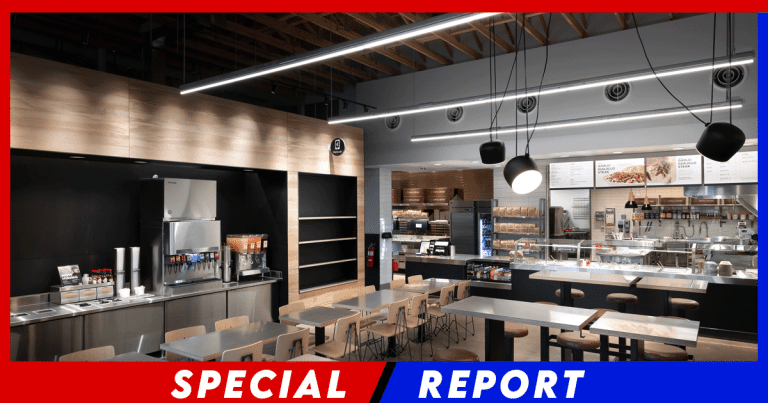
California recently raised its minimum wage to $20 an hour, with plenty of fanfare from politicians touting the move as a win for workers. But what happens when companies can’t keep up with the costs? The math is simple for many businesses: higher wages mean fewer jobs.
Employers now find themselves in the uncomfortable position of having to lay off staff or turn to automation to stay afloat. It’s a bitter irony—while the wage hike was meant to benefit workers, it might actually hurt them by slashing the very jobs they depend on.
The effects are already being felt across the state. Major fast-food chains, grocery stores, and small businesses are shedding employees or shutting their doors entirely. Digital ordering kiosks are replacing cashiers, and self-checkout lines are getting longer.
Even in a state as big as California, there are limits to how much businesses can absorb. While some workers are seeing a bigger paycheck, others are left scrambling for work in a rapidly shrinking job market.
From The Post Millennial:
Chipotle restaurants in California have introduced two robots to replace human workers in an effort to slash labor costs in response to the state-mandated $20 minimum wage. The first robot called the “autocato” can peel, stone, and cut an avocado, and then turn it into guacamole in 26 seconds. The other robot dubbed the “digital makeline” has the ability to portion salads and bowls based on orders from the mobile app.
Enter Chipotle, which has found a high-tech workaround to California’s labor crunch: robots. In response to the state’s wage increase, the fast-casual chain has rolled out two robots aimed at trimming labor costs.
The first, dubbed the “autocato,” is a mechanical whiz that can peel, pit, and slice an avocado in just 26 seconds—essentially taking over one of the more tedious tasks in the kitchen. Chipotle’s second robot, the “digital makeline,” handles portioning for salads and bowls, which make up two-thirds of the chain’s orders from its mobile app.
The goal of these robots is clear: fewer employees, less labor cost. As businesses grapple with rising wages, automation has become an increasingly attractive solution. Chipotle’s executives have noted that these machines are part of a broader strategy to keep operations efficient and reduce reliance on human labor.
By placing robots in two of its California locations—Huntington Beach and Corona del Mar—the company is testing how well it can ease the strain of higher wages without sacrificing the quality of its food.
Chipotle is far from alone in this push. Burger King and other chains in California have already started cutting back on human workers by deploying digital ordering terminals. For companies with razor-thin margins, these wage hikes are pushing them to make tough decisions. And in many cases, those decisions mean replacing people with machines.
But it’s not all about saving money, according to Chipotle. The company claims these robots could help streamline operations while ensuring consistency in portion sizes, something customers have complained about in the past. Chipotle’s Chief Customer and Technology Officer, Curt Garner, emphasized that the new tech could enhance both employee and customer experiences, while maintaining the chain’s signature high standards.
The real test will be in how customers react to the new automated experience and how well the remaining staff adapt to their robot coworkers.
The big question, of course, is whether this shift to automation will become the norm across Chipotle’s nearly 3,400 locations nationwide. The company has made it clear that it will gather feedback from both customers and employees before making any further decisions.
For now, the robots are being rolled out on a trial basis, but if the results are positive, it wouldn’t be surprising to see these machines popping up in Chipotle kitchens across the country.
While Chipotle tries to frame its automation push as part of a broader strategy to ensure consistency and efficiency, the timing speaks for itself. California’s minimum wage hike is putting pressure on businesses to cut costs, and technology offers a convenient way to do just that.
In the end, it’s a story we’ve seen before: higher wages lead to fewer jobs, and robots fill the gap. It’s a tough break for workers, but in a state where the cost of doing business is sky-high, companies like Chipotle are left with few alternatives.
Key Takeaways:
- California’s $20 minimum wage hike is causing job cuts as businesses turn to automation. Companies struggle with rising costs.
- Chipotle introduced two robots in California to cut labor expenses. One makes guacamole, and the other portions meals.
- Chipotle is testing the robots for efficiency. Expansion depends on feedback from staff and customers.
Source: The Post Millennial


